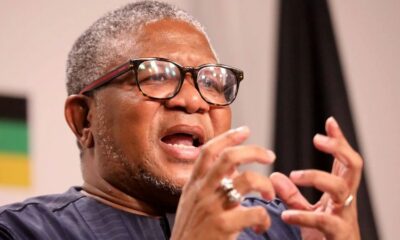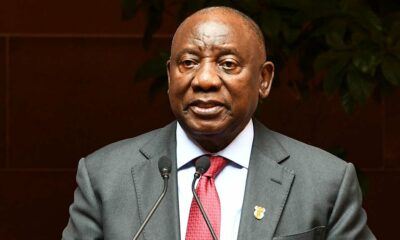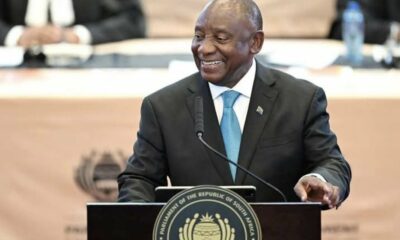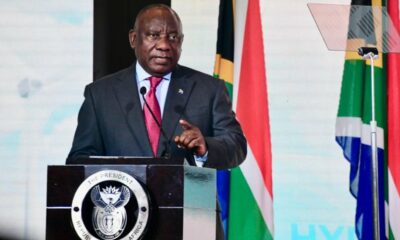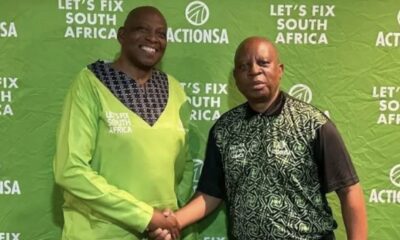News
Is Gayton McKenzie’s Political Future at Risk After Controversial Racial Slur Resurfaces?
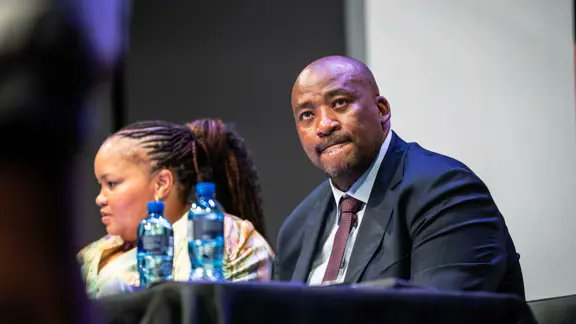
Gayton McKenzie’s Controversy: A Political Storm Brewing
Minister of Sports, Arts and Culture Gayton McKenzie, once hailed for his rapid rise in South African politics, now finds himself embroiled in a storm. Old social media posts have resurfaced, revealing that McKenzie used the deeply offensive racial slur known as the “k-word” multiple times. The fallout raises serious questions about his future—and that of his Patriotic Alliance party.
The Patriotic Alliance’s Rocky Road
The Patriotic Alliance (PA), a relatively young but influential right-wing party, has made significant inroads especially within South Africa’s coloured community. However, the party is no stranger to controversy. Recently, deputy president Kenny Kunene came under fire due to alleged ties with a murder syndicate member. Now, McKenzie’s racial slur scandal adds fuel to the fire, threatening to undermine the party’s standing.
Expert Insight: The Fine Line Between Free Speech and Hate Speech
Professor Theo Neethling from the University of the Free State’s Political Studies department weighs in, emphasizing that while McKenzie remains a powerful political figure, his use of the racial slur is unacceptable.
“In South Africa, we’ve agreed to reject language that causes offence, reflected clearly in our laws,” Neethling explains. “The Equality Act specifically bans hate speech, including words like the ‘k-word’.”
But Neethling also notes that McKenzie retains the right to explain his side and defend himself in court, where context can be thoroughly examined.
The Legal Framework
Under Section 10 of South Africa’s Equality Act, hate speech is illegal when it intends to harm or incite harm based on race or other protected characteristics. The South African Human Rights Commission (SAHRC) highlights that such speech is prohibited to protect dignity and social cohesion.
McKenzie’s Response and the Public Outcry
McKenzie has rejected accusations of racism, dismissing critics as engaging in a campaign to discredit him. “You’ve dug through 13 years of my past and found nothing racist,” he declared. “I fight for coloureds and blacks alike, because we are one people facing discrimination.”
Still, many South Africans remain unconvinced. Social media platforms have been ablaze with debate, with many users demanding accountability from a minister entrusted with cultural leadership.
A Broader Conversation About Race and Identity
Activist Melisizwe Mandela challenges McKenzie’s understanding of racism, framing it not as personal animosity but as a systemic structure rooted in white supremacy. Mandela stresses the complexity of coloured identity within South Africa’s racial landscape:
“Coloured people are black people, marginalised, dispossessed, and caught in the crosshairs of white supremacy,” he says. “To deny this is to erase their history and struggle.”
This perspective underscores the ongoing challenges South Africa faces in grappling with race, identity, and reconciliation decades after apartheid.
What Does This Mean for the Patriotic Alliance?
Despite the controversy, Professor Neethling warns against writing off the PA too quickly. The party has carved out a strong base in a community that feels overlooked by larger parties like the Democratic Alliance. McKenzie’s charisma and focus on this constituency have given the PA a foothold other parties envy.
However, the K-word scandal may test that loyalty, especially as voters demand integrity and sensitivity from their leaders.
Looking Forward
As this story unfolds, South Africa watches closely. Will McKenzie’s political career survive the backlash? Can the Patriotic Alliance recover from successive controversies? And more importantly, can the country move toward deeper understanding and respect across its diverse communities?
Whatever the outcome, this episode is a potent reminder that words carry weight, especially for those in power. The path to true unity requires honesty, accountability, and a willingness to confront uncomfortable truths.
{Source: IOL}
Follow Joburg ETC on Facebook, Twitter , TikTok and Instagram
For more News in Johannesburg, visit joburgetc.com

